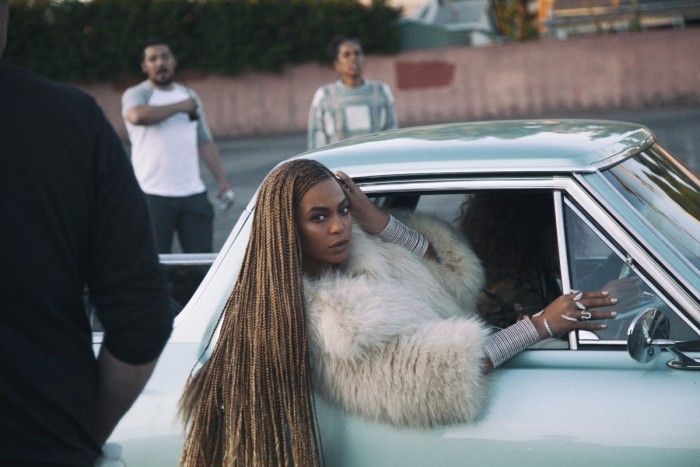It’s been a monumental week for Beyoncé. On the morning of Feb. 6, one of the most influential women in the world released her surprise new song and video, “Formation,” to her official website and a music streaming service, TIDAL. The single is her first in over a year, after a well-deserved break following the success of her unexpected self-titled album that took the music industry by storm in December 2013. One day after releasing “Formation,’ she accompanied Coldplay and Bruno Mars in the Super Bowl 50 halftime show where she then announced her world tour, which will happen this summer. The most significant aspect of those whirlwind twenty-four hours was without a doubt the masterpiece music video for “Formation.” The immediate response to the video exemplifies Beyoncé’s tight grip over the music industry; within one week, the video has racked up over 23 million views despite being unlisted on YouTube. But her power doesn’t just reign over the music world. After being mentioned in an iconic one-line, Red Lobster witnessed a 33 per cent spike in sales only one day following the song’s release.
Filmed in New Orleans, the video covers topics such as Hurricane Katrina, police brutality, and black heritage. The lyrics are unique and quotable, but still manage to express the controversial and significant messages needed. A consistent theme throughout the video remains evident: Beyoncé’s black culture and the pride she takes in it. Lyrics explaining her ancestry, featuring an Alabama father and Louisiana mother producing a “Texas bama,” are accompanied by her dancers in natural hair wearing twists, braids, and afros. The singer goes further than just an ode to her own heritage though, drawing on references to Dr. Martin Luther King in a newspaper headline reading “More than a Dreamer” that pays tribute to his legacy.
Released on the day after what would have been Trayvon Martin’s 21st birthday and the day before what would have been Sandra Bland’s 29th birthday, the timing of the video is extremely relevant to the message of black solidarity and pride. Both were victims of police brutality, and became figureheads of the Black Lives Matter movement. Beyoncé uses her influence to substantially advance the movement, reportedly bailing out black rights activists in both Baltimore and Ferguson. Symbols of police brutality in America are also scattered throughout the five-minute film: Police cars submerged in water transition to scenes of police vests and flashing lights. One poignant scene portrays a young African-American boy dancing to the beat of the music in all black and a hoodie. Before him stands a line of white police officers dressed in riot gear. As the dancer enacts “hands up, don’t shoot” the police copy in return and a tracking shot of a wall spray painted with “Stop shooting us” closes the scene.
Unfortunately, not everyone accepted the video with open arms. Many critics, including former New York City mayor Rudy Giuliani, attempted to boycott her Super Bowl performance by insisting that she used the stage as a “platform to attack police officers.” This is the hypocrisy: If Beyoncé had remained silent on the matter, she would be criticized by others for not using her monumental voice to make a change. Further, many are criticizing her for using the platform to promote her record and world-tour. But Beyoncé is more than just her activism, she is also a businesswoman. “I just might be a black Bill Gates in the making” serves as a smirking reminder that Beyoncé’s talent is a business. After her surprise album in 2013 sold over five million copies, her complete net worth to date is over $450 million. This world tour and album will undoubtedly rack in a substantial sum of money, and Beyoncé knows that, as she reminds listeners that the “best revenge is your paper.” She attempts to embody and present the circumstances of what it is like to be a black American in 2016 through culture and struggle. The purpose of the video is as simple as the fact that Beyoncé is black: Unafraid to show it and proud.







